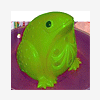-
Welcome to the eG Forums, a service of the eGullet Society for Culinary Arts & Letters. The Society is a 501(c)3 not-for-profit organization dedicated to the advancement of the culinary arts. These advertising-free forums are provided free of charge through donations from Society members. Anyone may read the forums, but to post you must create a free account.
Red Tide and Clams in Massachusetts
-
Similar Content
-
- 3 replies
- 3,924 views
-
- 9 replies
- 9,675 views
-
Clam chowder
By jende,
- 20 replies
- 13,138 views
-
- 1 reply
- 921 views
-
- 1 reply
- 1,492 views
-
-
Recently Browsing 0 members
- No registered users viewing this page.






Recommended Posts